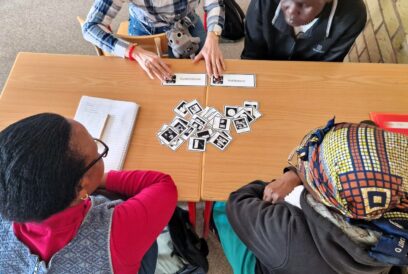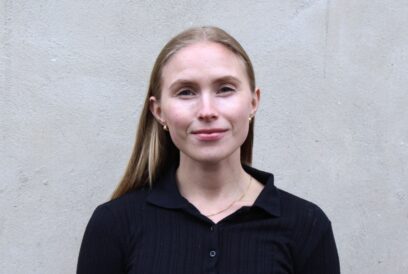

Resilience is vital in a learning setting because people often possess maladaptive beliefs about ourselves, others and the world. These beliefs are naturally more common in adults. Photo: Shutterstock
Resilience is vital in a learning setting because people often possess maladaptive beliefs about ourselves, others and the world. These beliefs are naturally more common in adults. Photo: Shutterstock
Therapists discuss the meaning of resilience in relation to their practice. They highlight the importance of engaging in an honest dialogue with oneself.
Resilience is rapidly becoming one of the more sought-after characteristics for students and learners, yet it is also widely criticised.
In an attempt to gain some perspective from the field of psychology, we approached Cas Hebbink and Thomas van Sonsbeek. Hebbink is a psychological counsellor who is also founder and facilitator at weSHARE support groups. Van Sonsbeek works as a psychotherapist at a practice in Amsterdam specialised in personality disorders.
Resilience has entered several fields as a buzzword. What is your professional understanding of the concept?
Van Sonsbeek: “Resilience” is a difficult construct – in many studies, the way it is used seems split. On the one hand, it is an outcome – something formed through adversity. And on the other hand, it is a possession or a mechanism – either you have it or you don’t. But it is becoming clearer now – we are slowly beginning to define it more accurately.
Even if we aren’t using the word “resilience”, resilience is what we are trying to build in every client.
Hebbink: Its rise has been interesting: an academic field is forming around it now as we are beginning to see more of its facets develop. It wasn’t really mentioned in my studies or any literature I encountered. But conceptually, it is firmly rooted in things such as protective factors, tenacity and persistence.
Van Sonsbeek: It is not a concept I often use as a therapist, as it is what we are essentially trying to accomplish all the time. Even if we aren’t using the word “resilience”, resilience is what we are trying to build in every client. Making them stronger, more adaptable to change, less likely to fall back into depression or anxiety, less likely to regress back to problematic behaviours.

Cas Hebbink is a self-employed psychological counsellor who runs his client-base and peer-support group from Berlin.
Why do you think learners need to be resilient?
Van Sonsbeek: Resilience is vital in a learning setting because we often possess maladaptive beliefs about ourselves, others and the world. These beliefs are naturally more common in adults.
If motivations, values, emotions and interests have never been harnessed, that can lead to a disbelief in your own abilities to learn. So, resilience is about reorienting yourself, about translating your negative experience into values.
We need our structures to also work for us; we cannot just work for them.
But we cannot expect parents and friends to do this job for us. There is definitely the need for more resilience workshops and training. Yet this should not be bound up with accepting injustices. We need our structures to also work for us; we cannot just work for them.
Hebbink: Agreed. Resilience cannot be another mantra similar to “just deal with it”.
What role can psychology play in helping adult learners?
Hebbink: We need to provide space for emotions, for discussing struggles. This would be a great societal way of integrating into the mainstream facets of what we do as counsellors and therapists.
I believe we all have a unique personal compass. Things that we are interested in jump into our perception. It’s not necessarily a choice. Things call out to us. This ties in very closely to the ideas of the humanistic psychology movement: we all have this force inside, or this essence, that is orientating us towards psychological growth.
But traumatic experiences get in the way of this. And only through dealing with that can our vision be liberated, allowing us then, for example, to learn.

Thomas van Sonsbeek is a psychotherapist at a practice specialized in personality disorders based in Amsterdam.
Van Sonsbeek: The image someone has of themselves can often hold them back. Perhaps they see themselves as a mother, and they don’t equate being a mother with being a social scientist, for example.
So, when applying for that evening class, they falter. Because what they need is an important shift in identity. And you need to make that shift before you can start seeing yourself as a learner again. This is why therapy, psychology and counselling are so integral to becoming a learner.
What practical advice or tools would you recommend for people wanting to become more resilient learners?
Hebbink: What’s helped me is firstly making sense of my past. Process that, then you can make sense of who you are right now. Then move onto values. And where do you want to go in life? What is truly important to you?
I think certain programmes and courses can be helpful. I used the Self-Authoring programme, although there are many other options, as it is a really complex dialogue to have on your own.
And yes, your community needs to be there, however big or small it is. Find someone with whom you can work, learn and play. Partnership helps with resilience. And not a just romantic one – any kind of partnership.
But therapy is something everyone should try. Just having five therapy sessions can be utterly transformative. I’ve seen this happen before: patients who very quickly work out what valves to pull and twist.
Van Sonsbeek: Cognitive-behavioural therapy has some very useful tools. But the best toolkit to nurture and develop resilience has not yet been made. The field is still in its infancy.
Author







